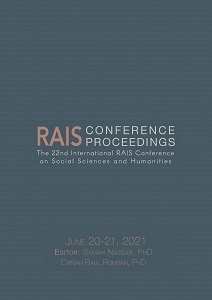Green Bonds and Diversified Interest Rates
Green Bonds and Diversified Interest Rates
Author(s): Julia M. Puaschunder
Subject(s): Energy and Environmental Studies, Economic development
Published by: Scientia Moralitas Research Institute
Keywords: Climate Change; Economics of the Environment; Environmental Justice; Environmental Governance
Summary/Abstract: The climate change crisis has gained unprecedented urgency in the most recent decade. Overall, climate change has already led to and will continuously lead to irreversible tipping points and lock-ins that will degrade the common welfare. When taking a closer look at the macroeconomic growth prospects as measured in Gross Domestic Product (GDP), climate change gains and losses will be distributed fairly unequally throughout the world. A climate change winners and losers index generated the economic prospects under climate change around the world. The index attributed economic gain and loss prospects based on the medium temperature per country in relation to the optimum temperature for economic productivity and the GDP composition per country in order to determine how far countries are deviating from their optimum productivity levels on a time scale. As economic gains and losses from a warming earth are distributed unequally around the globe, ethical imperatives lead to the pledge to redistribute gains to losing territories in the quest for climate justice. Climate justice comprises fairness between countries but also over generations in a unique and unprecedented tax-and-bonds climate change gains and losses distribution strategy. Climate change winning countries are advised to use taxation to raise revenues to offset the losses incurred by climate change. Climate change losers could raise revenues by issuing bonds that have to be paid back by taxing future generations. Regarding taxation, within the winning countries, foremost the gaining GDP sectors should be taxed. Climate justice within a country should also pay tribute to the fact that low- and high-income households share the same burden proportional to their dispensable income, for instance enabled through a progressive carbon taxation. Those who caused climate change could be regulated to bear a higher cost through carbon tax in combination with retroactive billing through inheritance tax to map benefits from past wealth accumulation that potentially contributed to global warming. A novel policy recommendation for enacting climate justice entails diversified interest rate regimes for climate bonds repayment based on the country’s initial position on the climate change gains and losses index spectrum. Diversified repayment of bonds is a new method aimed at ensuring to share the burden but also the benefits of climate change within society in an economically efficient, legally equitable and practically feasible way.
Book: Proceedings of the 22nd International RAIS Conference on Social Sciences and Humanities
- Page Range: 150-156
- Page Count: 7
- Publication Year: 2021
- Language: English
- Content File-PDF

